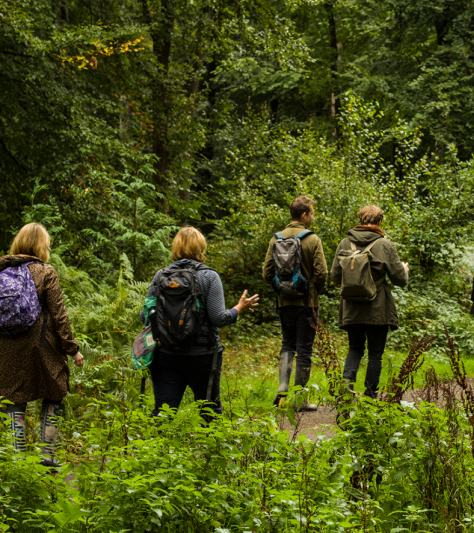Helping A Sports Club Meet Net Zero Goals
One of our smallest Grants for Resilient Woodlands is helping a thriving village sports club in Worcestershire move towards its goal of Net Zero.
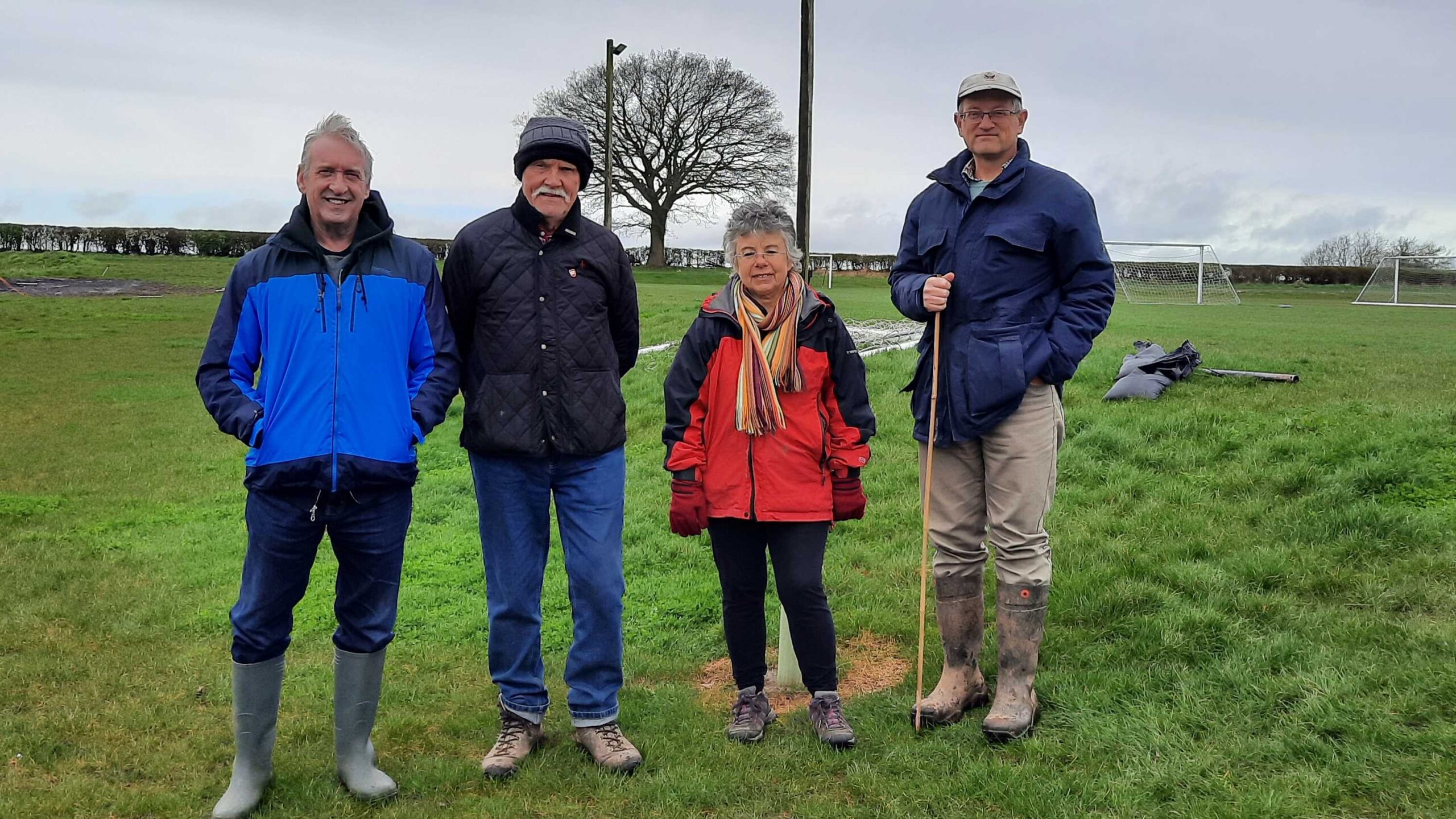
Pictured Above: On the pitch, from left: Colin Mason and Tracey Wyatt (Inkberrow Environment Group); Eddie Hobson (Inkberrow Football Club) and Gordon Allison, RFS Member and Scheme Instigator
Sporting Club Inkberrow (SCI) is in rural Worcestershire and was established in the 1970s. It has active and growing cricket and running sections as well as 36 football teams for all ages and abilities.
Its women’s football team play in the Midwest Counties Football League, there are two men’s senior Saturday teams. (one in Hellenic Division 1 having just reached Step 6 and the other team is in Midland Football League (MFL) Division 2 in Step 7). They also have a senior men’s team in the Evesham Sunday league.
Since 1999 SCI has leased and is in the process of gradually purchasing around 5.6 ha (14 acres) of former arable land for six football pitches and one cricket square. They will have a second cricket square in the near future. With the financial support of the Football League and Wychavon District Council pitches have been developed with stands for supporters, lighting, and irrigation systems.
The site is on an exposed ridge, 300 foot up overlooking the River Severn plain from the east, bounded on two sides by mature hedges. Another young hedge has been planted with support from Woodland Trust.
While the site is well drained and in places sandy, there is no other natural shade or wind breaks and limited biodiversity.
An Opportunity
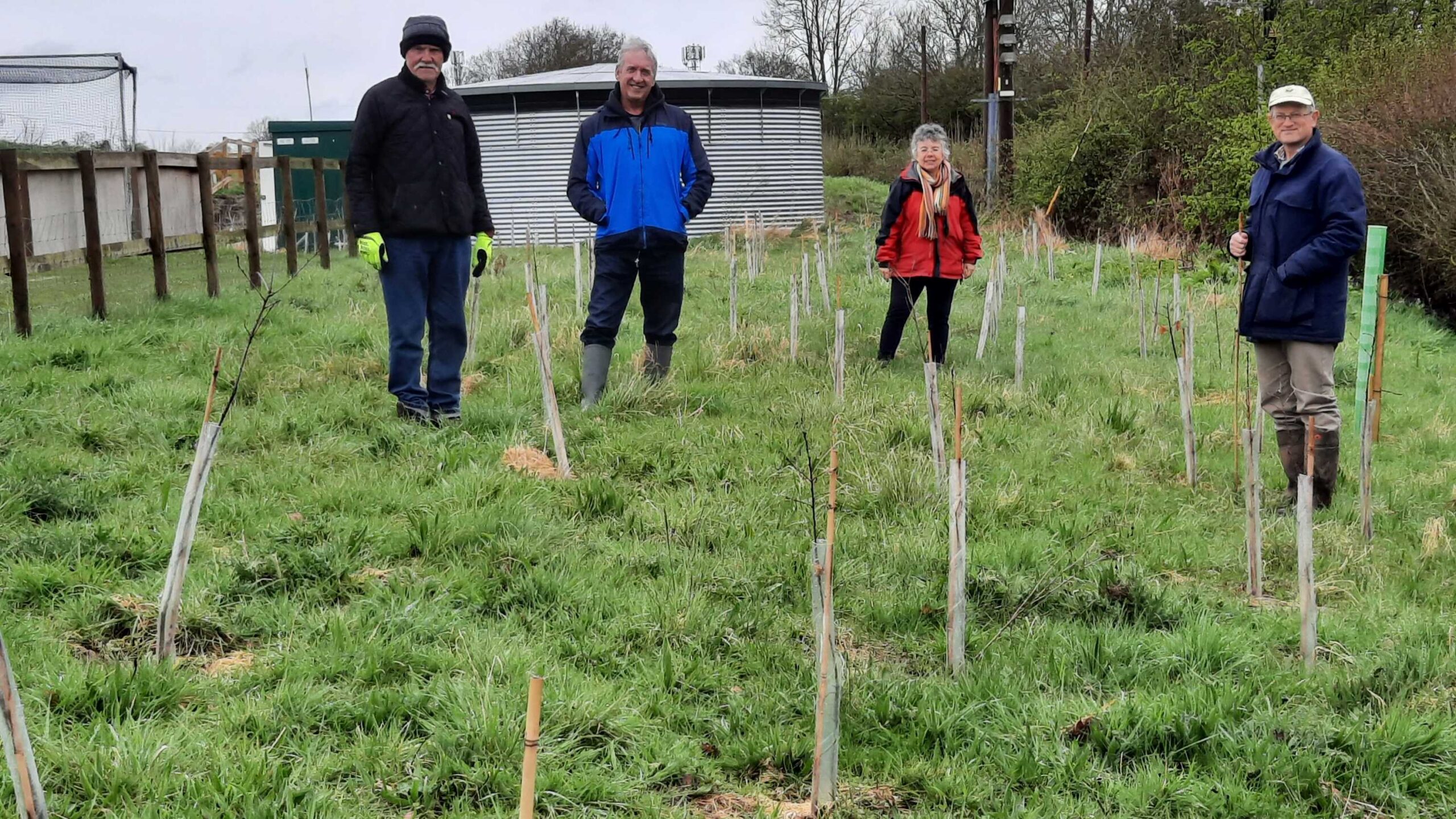
Above: Pitchside a new copse has been created using mixed native species
RFS Worcestershire Division Member and Sporting Club Inkberrow supporter, Gordon Allison, spotted an opportunity to do more using our Grants for Resilient Woodlands.
With support from SCI Chair Eddie Hobson, Gordon successfully applied for a grant for 500 trees to help meet the Club’s environmental goals and to link with wider village environment projects.
Eddie says:“ The Club aspires to Net Zero and is actively involved in other projects to meet those targets. These include developing an all-weather junior training pitch to reduce travel for teams which currently have to train elsewhere.
“Planting more trees on site to improve the landscape for supporters, provide shade and added biodiversity was a perfect fit for us.”
Species Choice
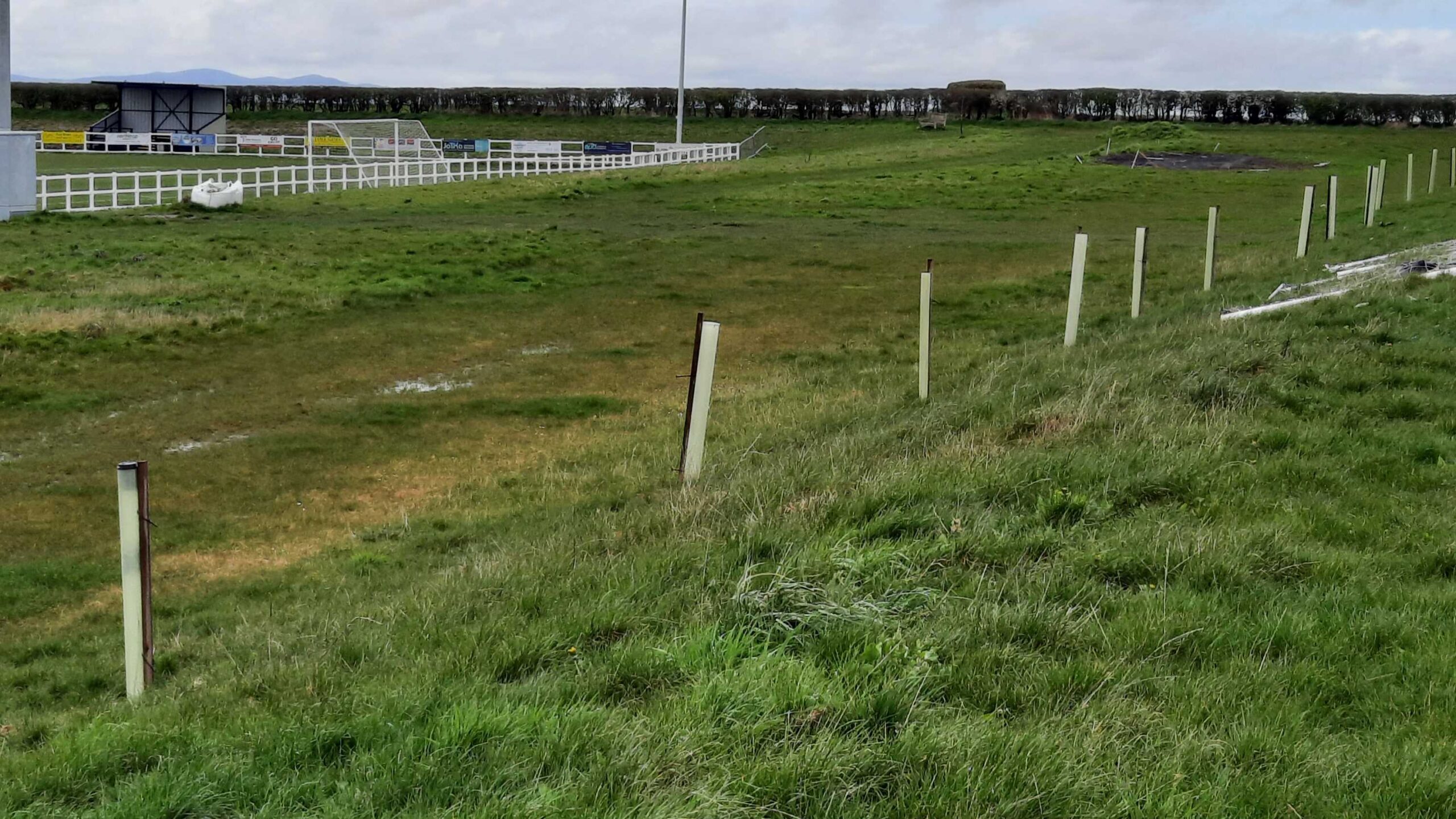
Above: A row of oaks delineates pitches and an area which is being developed for parking
Gordon, an Environmental Scientist from a farming background, has already planted and helped plant a number of woodlands in and around the village. these have included Inkberrow Women’s Wood, planted for the centenary of the Women’s Institute. He enlisted the help of the village Environment Group with the SCI plantings.
The soil is marl over Mercian mudstone. Gordon chose trees based on those that have proved to grow well locally in other woodland and tree projects within the village.
Trees already planted are:
- Oak (Quercus Robur) (50)
- Wild pear (10)
- Wild cherry (10)
- Field maple (10)
- Wild service (10)
They were provided by Mount Pleasant Trees in nearby Gloucestershire.
One hundred whips were planted with the help of the Inkberrow Environment Group in February 2024 and more will go in during the planting season 2024-2025.
A row of oaks was planted to delineate the two pitches, and line up with a semi-mature oak in the western hedge line. This was planted with the kind permission of the farmer Chris Hunt of Morton Underhill who is leasing and selling the land to the club.
To the side of one pitch, a small copse has been created with species planted in a mix in groups of five. The aim is to plant the remaining trees after the next stage of pitch development.
Care and Maintenance
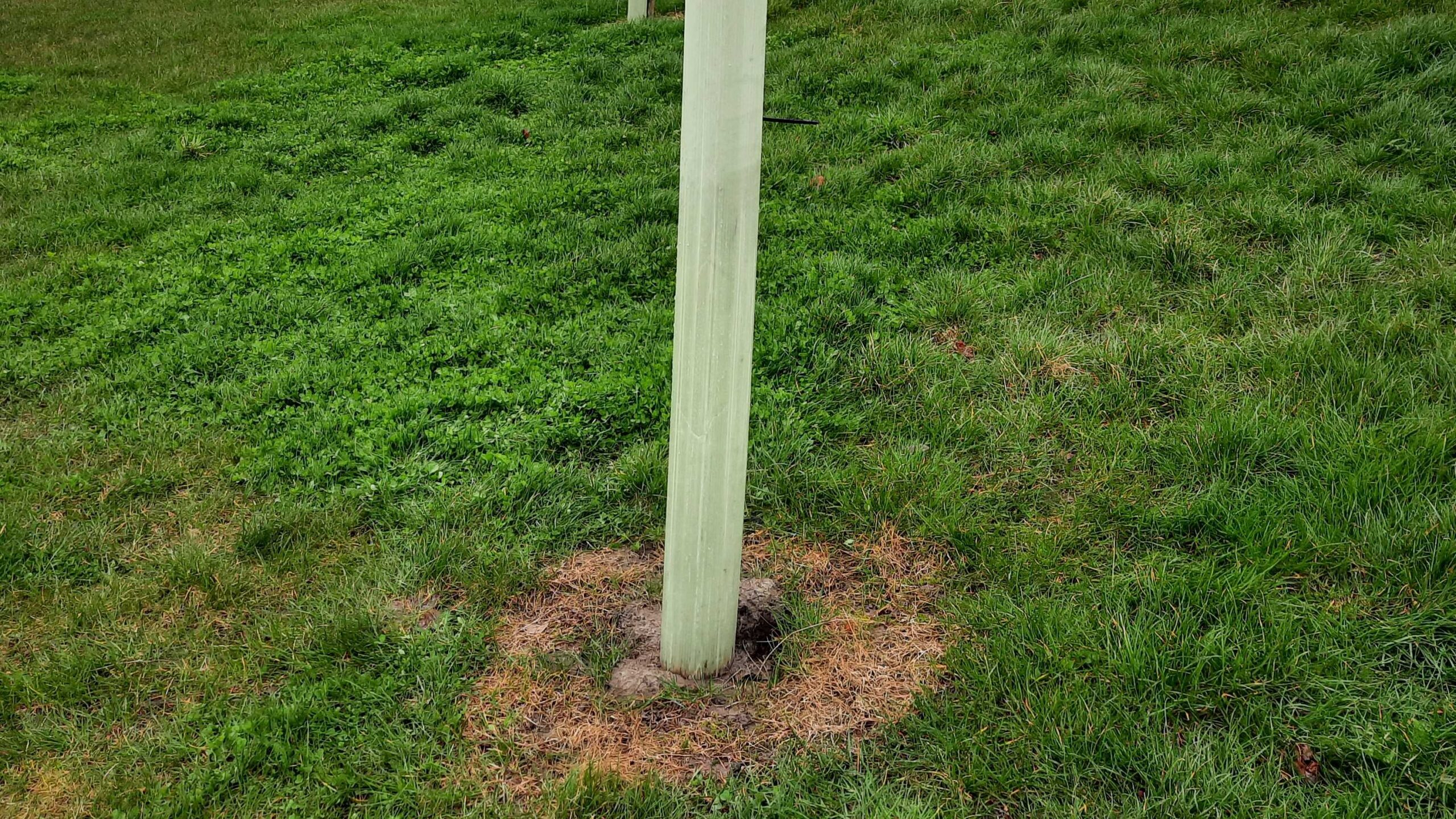
Above: weedwipe has been applied around each individual tree to control weeds and the oaks have been protected with deer guards
A low tech “weed wipe” method was used around each tree. This allowed the weedkiller to be wiped onto the weeds and grass around each tree with none of the risks of drift from spraying. Weeds will be monitored.
With roe and muntjac deer widespread in the area, the oak trees have been protected with deer guards and the remaining trees with rabbit guards.
The site is well drained, and can be subject to drought. An irrigation system installed to maintain the pitches can also be used to keep the new trees watered.
One idea being considered, which kept the newly planted Women’s Wood whips watered during the dry spring of 2020 in the first Covid lockdown, is to ask supporters of the club to adopt a particular tree and look after it.
More Information
If you are interested in learning more about this project, please email us at rfshq@rfs.org.uk
Grants for Resilient Woodlands
Our Grants for Resilient Woodlands are funded by Train Hugger and Green The UK. They are open for applications from RFS and Royal Scottish Forestry Society (RSFS) members all year round.
These grants are to help people plant trees that will survive and thrive into the future. Creating better, more resilient treescapes for our environment, for people and for the economy.



